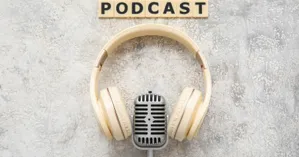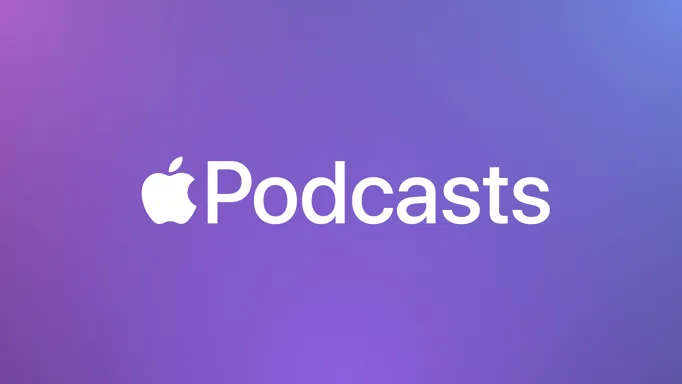- Quick Summary
- Define Your Podcast’s Foundation
- Choose a Great Topic for a Successful Podcast
- Research Your Audience
- Develop Your Brand and Online Presence
- Pick a Format
- Name Your Podcast and Write a Description
- Purchase Equipment
- Choose Podcast Hosting Platforms
- Record and Edit Your Podcast with Editing Software
- Get Listed on Apple Podcasts
- Monetize and Track Your Podcast’s Success
- Conclusion

- Quick Summary
- Define Your Podcast’s Foundation
- Choose a Great Topic for a Successful Podcast
- Research Your Audience
- Develop Your Brand and Online Presence
- Pick a Format
- Name Your Podcast and Write a Description
- Purchase Equipment
- Choose Podcast Hosting Platforms
- Record and Edit Your Podcast with Editing Software
- Get Listed on Apple Podcasts
- Monetize and Track Your Podcast’s Success
- Conclusion
Podcasts have become very popular. In fact, 42 percent of Americans aged 12 and older have listened to a podcast in the past month. And that number is expected to grow. So, you’re looking for a lucrative side hustle. We came up with eight tips to start a successful podcast as a side hustle. Creating your own podcast involves initial excitement and dedication, including all the necessary preparations and learning involved.
1. Define Your Podcast’s Foundation

Defining your podcast’s foundation is crucial to creating a successful podcast. Start by determining your podcast’s niche, target audience, and unique selling proposition (USP). Your niche should be specific and focused on a particular topic or theme that you are passionate about. This will help you stay motivated and produce engaging content consistently.
Next, clearly define your target audience. Consider their demographics, interests, and pain points. Who are they? What are their needs and preferences? Use tools like Google Trends, social media, and online forums to gather insights and validate your ideas. Understanding your audience will help you tailor your content to their interests and build a loyal listener base.
Your USP should differentiate your podcast from others in the same niche. What makes your podcast unique? Why should listeners choose your podcast over others? Your USP should provide a compelling reason for listeners to tune in.
Once you have a clear idea of your podcast’s foundation, create a mission statement that summarizes your podcast’s purpose, tone, and style. This will serve as a guiding principle for your podcast and help you stay focused on your goals.
2. Choose a Great Topic for a Successful Podcast

If you’re in this for the long haul, you’re going to want to choose a topic that excites you and that you won’t get bored with. Go with your passion and curiosity. What topic are you an expert in or want to learn more about? You’ll need to do some research, so pick something you enjoy. Personal development is a popular niche that can attract a dedicated audience. Some of the most successful podcasts aren't necessarily the most entertaining or intriguing but people listen because the podcaster is passionate about the talking points.
3. Research Your Audience

You have a topic, but who's going to listen to or watch it? This is a step that many people skip, but it's a vital one. Know your audience so you can choose subjects that they'll enjoy. For example, are you trying to reach women? How old are these women, and are they married? Is there a need for your topic? Learn as much as you can about your audience.
4. Develop Your Brand and Online Presence

Developing your brand and online presence is essential to promoting your podcast and attracting listeners. Your brand should reflect your podcast’s unique personality, tone, and style, and should be consistent across all online platforms.
Start by creating a unique and memorable logo that represents your podcast. Use a consistent color scheme, typography, and imagery across all online platforms, including your podcast’s artwork, website, social media profiles, and email newsletter. Consistency in branding helps build recognition and trust with your audience.
Create a website that showcases your podcast’s episodes, show notes, and behind-the-scenes content. A well-designed website can serve as a hub for your podcast, providing listeners with easy access to all your content and additional resources.
Use social media to engage with your audience, share behind-the-scenes content, and promote your podcast. Platforms like Instagram, Twitter, and Facebook are great for building a community around your podcast and keeping your audience informed about new episodes and updates.
Finally, create an email newsletter that summarizes your podcast’s latest episodes and provides exclusive content to your subscribers. An email newsletter is a powerful tool for maintaining a direct connection with your audience and keeping them engaged with your podcast.
5. Pick a Format

How will you format your podcast? There are several options. You could have people call in and ask you questions, or you could interview an expert on your topic. Another option is just to go solo and talk. Will you have a partner? If so, you can do a conversational podcast. You could also have a few people on and have a panel discussion. It's important to know this not only to plan your podcast but also to know what technical equipment you'll need.
6. Name Your Podcast and Write a Description

Your podcast will need a name. Try to make it a name that encompasses your topic. If you are known for your expertise on this subject, use your name. Then, write a compelling description of your podcast. Your description will convince people to tune into you, so it needs to be good —no pressure!
Additionally, ensure you have compelling podcast artwork to attract listeners and enhance visibility in podcast directories.
7. Purchase Equipment

Purchase a good podcast microphone and a portable recorder if you plan on going out of the studio. If not, you can use your computer if you have the audio software. Audacity is an excellent inexpensive software you can use. It's important to choose the right editing software to make the process easier and more efficient; options like Descript are highly recommended. Later, you could upgrade to Sound Forge Pro 18. Additionally, selecting suitable recording software like Garageband or Riverside is crucial for capturing high-quality audio during your podcast episodes.
8. Choose Podcast Hosting Platforms

Subscribe to a hosting platform on a monthly or annual basis. A podcast host has two primary responsibilities. It provides a place on the web where you can upload. This is important so listeners can find a convenient place to find your podcast. The second responsibility is to provide you with an RSS feed generator. This allows you to easily upload your podcast to numerous directories through an RSS feed. Some hosting providers include Libsyn, Buzzsprout, Castos and more.
9. Record and Edit Your Podcast with Editing Software

Sit down and record your podcast. Managing and hosting audio files on a podcast hosting platform is crucial for distribution to major podcasting networks. You may be nervous the first time you record, but remember that everyone is at first. Planning and recording your first episode is important; consider having multiple episodes ready at launch to attract listeners. Besides, you can edit yourself and take all those long pauses out. The more you practice and record, the better you’ll get.
10. Get Listed on Apple Podcasts

Getting listed on Apple Podcasts is a crucial step in promoting your podcast and reaching a wider audience. Apple Podcasts is one of the largest podcast directories in the world, with millions of listeners searching for new podcasts every day.
To get listed on Apple Podcasts, start by creating an Apple Podcasts account and verifying your email address. Next, submit your podcast’s RSS feed for review. Make sure to include all required metadata, such as your podcast’s title, description, and artwork. This information helps potential listeners understand what your podcast is about and why they should tune in.
Once your podcast is approved, it will be listed in the Apple Podcasts directory, making it discoverable by millions of listeners. Being listed on Apple Podcasts can significantly increase your podcast’s visibility and help you attract a larger audience.
11. Monetize and Track Your Podcast’s Success

Monetizing and tracking your podcast’s success is essential to measuring its impact and generating revenue. There are several ways to monetize your podcast, including sponsorships, advertising, affiliate marketing, and selling products or services.
Start by identifying potential sponsors or advertisers that align with your podcast’s niche and audience. Reach out to these companies and propose a sponsorship or advertising deal that includes pre-roll or mid-roll ads, product placements, or sponsored content. Sponsorships and advertising can provide a steady stream of income for your podcast.
You can also use affiliate marketing to promote products or services related to your podcast’s niche. By sharing unique referral links, you can earn a commission for each sale made through your link. This can be a great way to generate additional revenue while providing value to your listeners.
Finally, use analytics tools to track your podcast’s listenership, engagement, and conversion rates. Platforms like Apple Podcasts, Google Analytics, and podcast hosting platforms like Libsyn or Buzzsprout offer valuable insights into your podcast’s performance. Use this data to make informed decisions and adjust your monetization strategy as needed.
By implementing these strategies, you can monetize your podcast and track its success, ensuring that your side hustle becomes a profitable and rewarding venture.
Conclusion
Starting a podcast is exciting. But it all starts with having a strong topic and doing your audience research. Once you have that, everything else will fall into place.



